 In 2020, we will be 12 years removed from the first political triumph of technology, the generational election of Barack Obama. All his progress is now being undone, much as a generation ago oil’s gains were threatened by Jimmy Carter and his cardigan sweater.
In 2020, we will be 12 years removed from the first political triumph of technology, the generational election of Barack Obama. All his progress is now being undone, much as a generation ago oil’s gains were threatened by Jimmy Carter and his cardigan sweater.
As we prepare to play the 1980 Game the question becomes, who is Ronald Reagan now? (It’s usually phrased, “Who Can Beat Trump?”) The answer lies in what drives our economy today, and in what drove it then.
I remain confident in the ultimate triumph of Democracy because, today, human capital is the gating factor to economic growth.
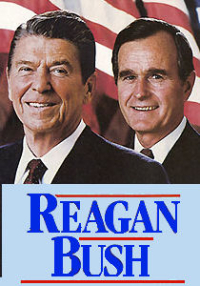 Human capital doesn’t just mean people. It means smart people, trained minds, armed with the tools and incentives to think differently, free both to self-organize and find a market. The more smart, enthusiastic, imaginative minds a country can harness, the faster its economy grows.
Human capital doesn’t just mean people. It means smart people, trained minds, armed with the tools and incentives to think differently, free both to self-organize and find a market. The more smart, enthusiastic, imaginative minds a country can harness, the faster its economy grows.
This is not the way it was in 1980. At that time great wealth was defined by control over resources. Money came out of the ground.
In my parents’ time, in the 1940s, manufacturing created the greatest wealth. The arsenal of democracy conquered the world.
In my grandparents’ time, in the 1920s, it was infrastructure delivering predictable prices that was the gating factor to wealth. Stable prices for power, communication, and transport let Ford, RCA and General Mills win global markets.
In each of these eras, wealth drove American politics. Regulation came about in the early 20th century to assure growing manufacturers of stable prices. It broke down late in the century as control over resources, through capital and military force, became more important.
It is this late 20th century order of guns, capital and control that is being challenged in our time. The first challenge came in the market, now ruled by Cloud Czars like Google, Amazon and Microsoft. The political challenge is inevitable, and irresistible.

Minds create wealth.
Freedom powers the best minds. Ordered liberty is necessary for the work of great minds to succeed in the market.
The final balance of order and liberty is yet to be determined. This is what is at stake in the world today.
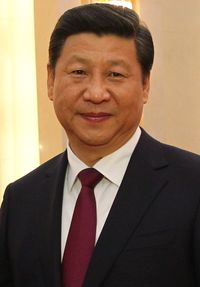
The American system is based on liberty. Democracy and capitalism create flexibility. They let societies change their minds.
An economy based on resources doesn’t need liberty. It can keep things from getting done. Economies built on resources over the last 40 years – in Arabia, in Russia, even in Texas — are built on top-down order, not on ordered liberty. They require control over vast amounts of capital, vast armies of people, and vast tracts of land.
The political question of our time is whether this obsolete economic model will control our political model, at the expense of technology and biology.
For now, China’s system of order works for them. Handing out freedom with an eye dropper makes it precious. It can be channeled into producing higher living standards. It has brought China, in one generation, through 200 years of American economic history, from the age of small farms through the age of great industries into the world of clouds and devices.
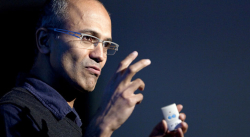
Technology’s demands for 2020 are modest. They want more elite education, so the best minds can be trained to do their thing. They want decent immigration policies, so that people can be brought in to fill the gaps.
Fortunately for the Democratic Party, the Trump Party absolutely rejects both these demands.
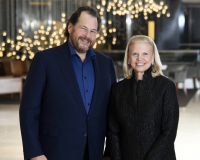
Politics is why some tech titans have been buying elite media companies. Having destroyed the business model built on content and context, in favor of one built on data and audience control, people like Jeff Bezos, Laurene Jobs and Marc Benioff (left) are putting media brands under their political patronage to drive elite thought their way.
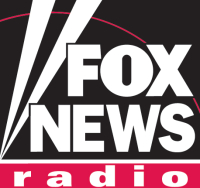
Most of what you’re going to read and hear over the next 18 months will be noise. It’s the struggle between a massive supply of trained, enthusiastic minds on one side, against a feudalism that gives China the whole board, that will define the politics of 2020.
Once technology makes its choice among the various Democrats, it will be game on.
My guess remains that Kamala Harris is the favorite. She is like George Bush in 1980. She’s in the center of the new Democratic consensus. She wants law and order to control the strong as well as the weak. She’s from the Bay Area, the beating heart of technology. Her life story as the American-born daughter of a Jamaican man and an Indian intellectual is compelling.
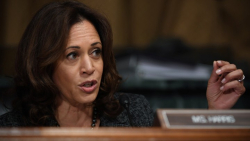
A Biden-Harris Administration, run by people from Harris’ “tech mafia,” could be the answer to the questions asked by the 1980 Game.









